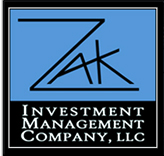
757.227.5600
142 W. York St,
Suite 614
Norfolk, VA 23510
 |
 |
||||
|
|
|||||
|
|
 |
THOUGHTS ON DIVERSIFICATION & Warren Buffett’s thoughts on fund managers owning hundreds of stocks, “Anyone owning such numbers of securities…is following what I call the Noah School of Investing—two of everything. Such investors should be piloting arks.”—Roger Lowenstein’s Buffett. “If I have to have a position in each sector of the S&P 500, then what I know before the year even starts is that I will have exposure to the worst sectors of the market as well as the best. Why would I have a process that guarantees exposure to the worst sectors of the market?”—2006 interview with legendary investor, Bill Miller. Diversification is a critically important concept within investing, and worthy of tremendous attention. However, many investors don’t seem to realize that there is such a thing as overdiversification, and the concept of too much diversification deserves just as much discussion. Academic studies have shown that the vast majority of the benefits of diversification can be achieved with as few as 15 stocks. Even though this is the case, many advisers especially ones that use mutual funds, will create portfolios that contain 1,000s of underlying holdings. The problem with owning a thousand stocks is that, if you are essentially buying the entire market, it is mathematically impossible to outperform the market. Additionally, if you’re just matching the market’s returns, but then you are paying management fees, and in many cases multiple layers of fees—the sub-adviser who is managing the fund plus the broker or adviser that is choosing the funds—you’re guaranteed to underperform the market. Why then do so many advisers’ choose this route for their clients? The answer is really quite simple--there is safety in numbers. Typically, an advisor won’t get fired by his or her client, if the advisor’s returns are close to the market’s return. However, if a client wants to simply get the market return, and not have to pay fees, the best option for the client is to just buy an investment that mimics the benchmark like an index mutual fund or an index related exchange-traded fund (ETF). This isn’t how we approach the investment process at Zak Investment Management. We’re enthusiastic proponents of active management i.e. trying to beat the market averages. We just think that if you’re going to hold yourself out as an active manager and charge the fees that go along with that, you should do more than just invest your clients’ money in a “closet index” fund. We think that you should give your client a fighting chance to best the market. The approach that we employ doesn’t focus on the benchmark weight of certain stocks or sectors. Instead, we concentrate our portfolios in the most attractive ideas (20-25 stocks) that we can find regardless of size, sector or style, and then we monitor these high-conviction names very closely. We operate this way because we think that it gives us the best probability to consistently “beat the market”. The reason this is the best way to approach the money management process becomes extremely clear when one examines the following table, and sees the effect that even incremental returns over the market can have on long-term money growth when compounded over significant amounts of time. |
|
|
|
|
|
|||||
|
|
|
|
|
|
|
